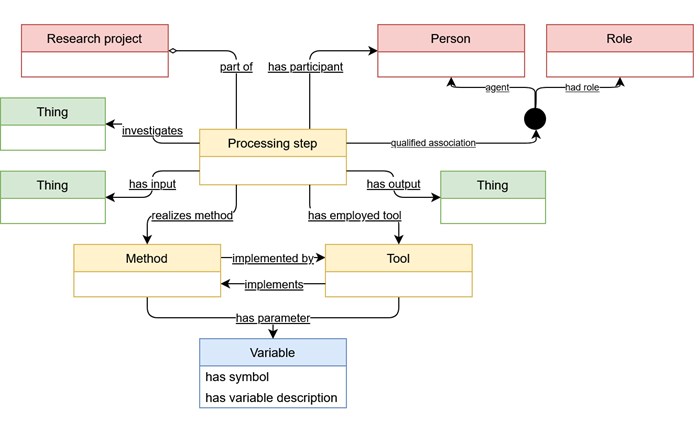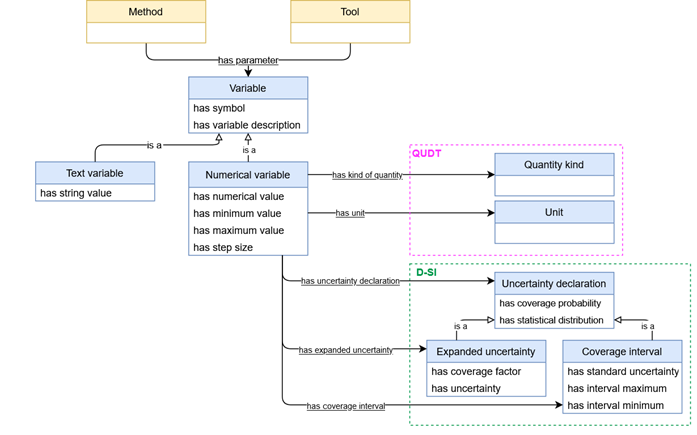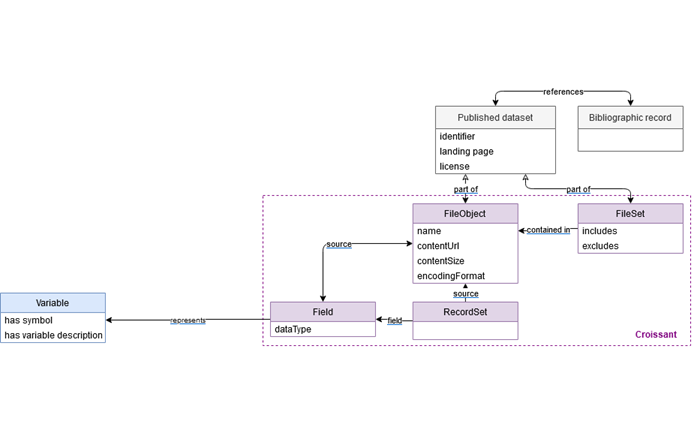Metadata4Ing in a nutshell
Knowledge Graphs use semantic technology to globally link information. Ontologies serve as the backbone of these graphs by offering machine-readable concepts to describe and link the information entities. Metadata4Ing (m4i) is an ontology for a process-based description of research activities and their results. The central class is a processing step, connecting input and output with methods, tools and actors.

M4i builds on top-level ontologies like the BFO, PROV and schema.org and integrates existing concepts from other ontologies as far as possible to enhance the interoperability of its usage.
What is new?
In the new release of m4i, the modeling of numerical parameters and variables with their units and uncertainties has been simplified.

Datasets and files as inputs and outputs within a research process can now be further described with the concepts of Croissant and be connected to published datasets.

Version 1.3.0 also enhances the compatibility of m4i with RO-Crate, a lightweight approach to package research data with their metadata in form of so-called research objects. A new guide explains how to use a new context file to use m4i metadata as provenance metadata in an RO-Crate.
In addition to the conceptual innovations, the current version of m4i offers revised documentation with colour-coded and interactive figures.
Where to find Metadata4Ing?
Metadata4Ing is available on the Terminology Service of NFDI4Ing. The documentation references all classes, individuals and properties that are defined or reused by m4i. On the Gitlab repository of Metadata4Ing, you can get involved with the developers, make suggestions or report issues. The First Steps Guide and the RO-Crate-Guide support the use of m4i with specific examples. A citable version of the release is also published on Zenodo.
